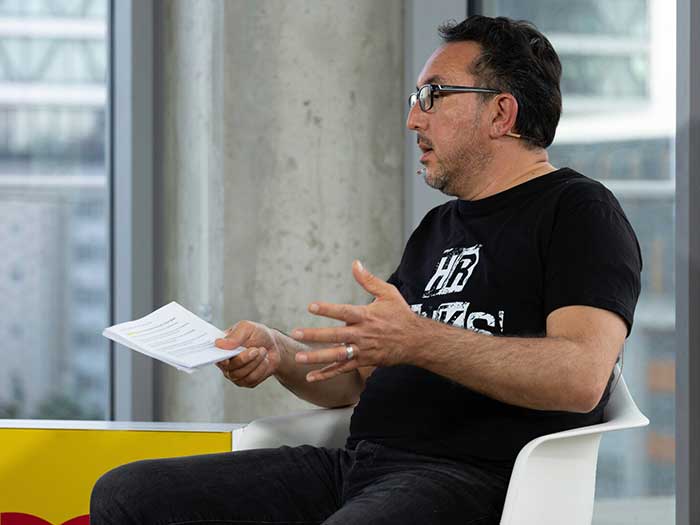Responsibility and dialogue: leadership in the digital age
Placing people, their needs, and interaction at the heart of everything; ideas that come from the ability to listen and the value of diverse ways of thinking – this is pioneering leadership, which leads to genuine innovation. Here are the views of a manager and a Human Resources expert on the subject.
What does it mean to practice leadership in the 21st century and how do you become a pioneering leader, with a philosophy that can take people, work processes, and success into account? Hildegard Wortmann and Cawa Younosi discussed this at the Bits & Pretzels 2020, a conference dedicated to start-ups held in Munich during Oktoberfest. They shared their thinking on the concept of agile and passionate leadership.
Younosi is Head of HR at SAP and is known for his trademark sense of humour, while Wortmann is Board Member for Sales and Marketing at Audi.
Leadership culture
Coronavirus has had a major impact on leadership culture, and has become the driving force behind certain values. The past few months have, in fact, shown which leaders have been able to adapt. “Despite the physical distance between them, managers and employees have continued to grow closer together,” says Wortmann.
In a time of globalization, digitalisation and social media growth, everything has become faster. Companies as well as managers have to respond rapidly and flexibly, and be able to adapt to changing situations, taking new, and even risky, paths.
What “unbossing” means

This also includes adopting a style of agile management – what Wortmann defines as “unbossing”. In order for there to be an atmosphere in which innovation can thrive, it is essential for managers and employees to see each other as equals.
With agile leadership, the individual employee is given more responsibility, with the boss relinquishing some control and relying more on trust. “Especially in the automotive industry, everything is changing – and so it is particularly important to be open to new ideas from every employee,” explains Wortmann.
Emotional intelligence
Both Wortmann and Younosi agree that emotional intelligence is the fundamental basis for innovative leadership. “Listening to each other, learning from one another, and exchanging ideas on an equal footing − this is the only way we can drive innovation, work flexibly and take our company to a new level,” explains Wortmann. This is echoed by Younosi: “Since coronavirus, there has been a new kind of trust and consideration towards each other in companies − and that is crucial. After all, innovation can only flourish if there is a good atmosphere at work.”
Innovation comes from everyone

“Anyone can have good ideas − no matter what position, background, age or gender,” adds Younosi, who believes that diversity is essential for innovation and brings a new level of energy to every company.
“If everyone in the company is able and allowed to remain authentic, this will be key to corporate success and innovative business models. Promoting this kind of behaviour means establishing yourself as an authentic and passionate leader” continues Wortmann.
Change is opportunity
The most important thing for both Wortmann and Younosi is that companies and managers must be open to change. “Change is a good thing – only if we think like this, do we develop and evolve,” explains Younosi. Wortmann concludes by saying: “We must always remain curious and above all take an outside-in perspective.”
No matter whether it’s marketing or human resources: people and their needs must be at the center of things – and that holds for both customers and employees. After all, these are precisely the characteristics that make start-ups so fast-moving and successful: agile working methods, flat hierarchies, and a cooperative management style.
Source: AUDI AG
